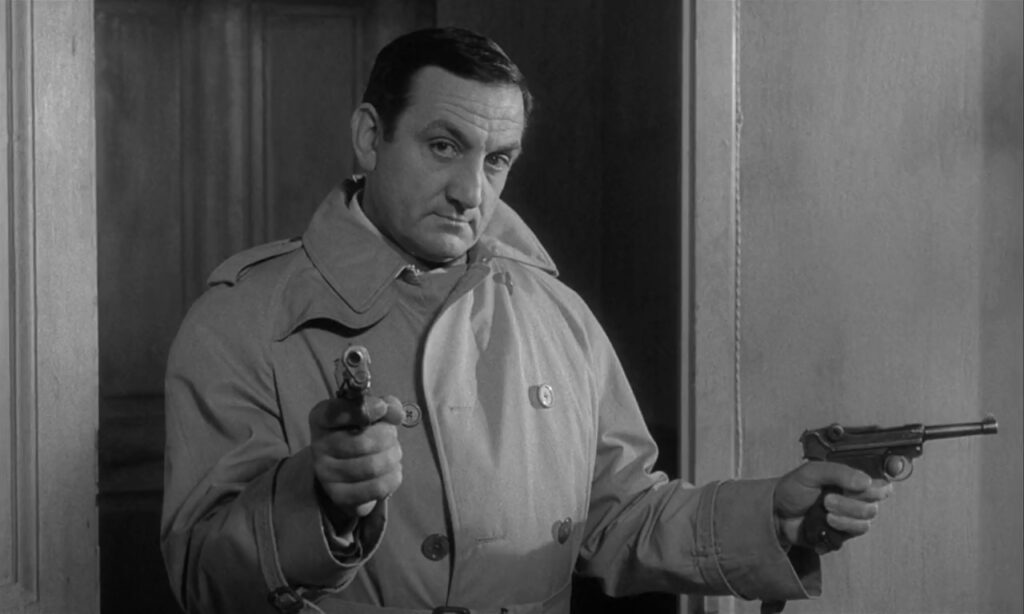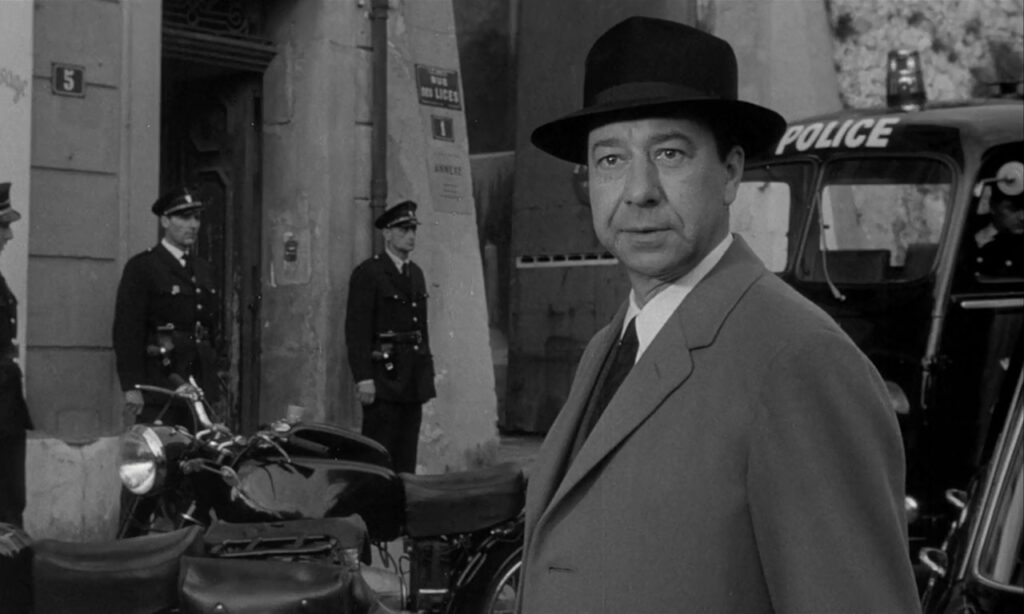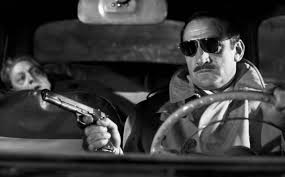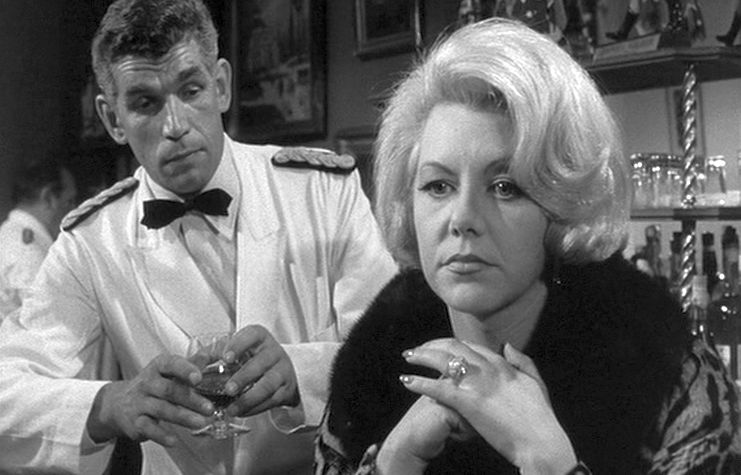
The 1966 French neo-noir Le deuxième souffle (Second Wind) is a battle of craft and will between a criminal and a cop. Both men are formidable, as the French would say.
Gu (Lino Ventura) breaks out of prison after ten years and sneaks back into Paris where the only two people he trysts can hide him. Gu was France’s Public Enemy Number One BEFORE he escaped, so he knows that he won’t be able to hide indefinitely in France. He wants to resettle in Italy, but he’s broke, so he needs the windfall from One Last Job to set him up. Gu is so fearsome that much of the underworld wants him eliminated for their own safety.
Gu has top-rate criminal skills: instantaneous decision-making, a fundamental ruthlessness, and the ability to take a licking and keep on ticking. Gu has an absolute commitment to his own code; he will never talk to the police or tolerate anyone who does.

The police inspector nicknamed Blot (Paul Meurisse) is always the smartest (and usually the most jaded) person in the room. Blot knows that, to protect the public, he has to get Gu off the streets, he also knows that Gu is too wily and disciplined to be caught by the police unless they get a lucky break. Blot and Gu share a deep and basic tenacity.
While Gu is being concealed from the cops and the gangsters, a Marseille crime lord gets an inside tip about a potential heist with a massive payoff, and he starts to assemble a team to implement his plan. The stories of Gu’s flight and the Marseille heist soon intersect.
Le deuxième souffle is the story of a man on the run, a perfect heist and one double cross after the other. Blot’s Plan A is to manipulate other gangsters to hunt down Gu and kill him. Plan B is to keep his forces at the ready in case the cops get that lucky break.
Le deuxième souffle was co-written and directed by Jean-Pierre Melville, that rare Frenchman enamored of American culture; besides adopting the surname of the American novelist, Melville tooled around 1950s Paris in a Cadillac, wearing a Stetson. After making the seminal French film noir Bob le Flambeur, Melville went on to create a great string of neo-noirs in the 1960s, including Le deuxième souffle, starring Alain Delon, Jean-Paul Belmondo and Lino Ventura – Le Doulos, Le Cercle Rouge, Le Samourai and Un Flic.
Melville knew how to direct action – the film opens with a prison break and ends with a shootout, with a thrilling heist in the middle,
Melville co-wrote the screenplay with Jose Giovanni, whose 34 screenwriting credits include the all-time best prison break movie, Le Trou, and another Perfect Crime picture, The Sicilian Clan. Giovanni had a lot of cred for his crime screenplays because it was known that Giovanni himself had spent eleven years in prison. Just exactly WHY had been in prison wasn’t revealed until 1996, when Giovanni was age 70. It turned out that he had adopted the name Giovanni to conceal his conviction for robbing, blackmailing and murdering Jews while collaborating with the Nazis during WW II. If you want a look at this richly talented but despicable man, Giovanni plays one of the crooks in Symphony for a Massacre.

One of the most watchable French stars, Lino Ventura’s bloodhound face had been reshaped by his earlier careers as a professional wrestler and boxer. Here, he’s the guy you’re drawn to whenever he’s on-screen. Ventura always played a criminal (Touchez pas au grisbi, Razzia) or a cop (Elevator to the Gallows, The Sicilian Clan). In addition to his physicality, Venture had a magnetism that made him very relatable, always something more than a goon or a thug.
Eddie Muller points out that Lino Venture ranks #23 on a list of the 100 top French people of all time (with Napoleon, Madame Curie, Louis Pasteur and Charles DeGaulle – and Jean Gabin is the only actor rated higher). But guess what? Ventura was Italian. And he’s the only person on the list of 100 greatest French people who’s not French.
Paul Meurisse is probably best known for his role in the suspense classic Diablolique, as the tyrannical schoolmaster who abuses his wife and girlfriend. Check out where Meurisse’s Blot focuses his eyes – rarely at the person he’s talking to. The scene where Blot, who has seen it all, sizes up why there are no witnesses to a murder in a nightclub is very witty.
Christine Fabrega is superb as Gu’s old flame Manouche, Fabrega acts with her eyes as she reacts to sometimes startling turns of events. Michel Constantin is particularly vivid as Manouche’s loyal bartender/henchman Alban, another hood of great skills and few words. Pierre Zimmer is very good as the mysterious Orloff, a hood almost as slyly amoral as is Gu.
I want to go to Jo Ricci’s club in Marseilles – a place where the entertainment is ten supermodels dancing, even though there are only maybe eight tables and five barstools for customers.
Le deuxième souffle is highly recommended for the storytelling mastery and stylistic imprint of Melville and the performances of Ventura and Meurisse. It is included in subscriptions for Criterion and Watch TCM, and you can pay to stream it from Amazon and Fandango.

